A cop was going to give a familiar vagrant a ticket for panhandling, so he asked for his ID. When the conversation took an unexpected turn, the officer ordered the man into his cruiser. The homeless man was shocked to see where he was going.
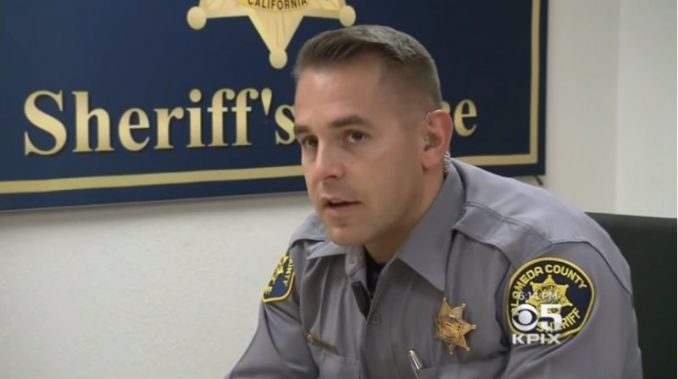
Deputy Jacob Swalwell with the Alameda County Sheriff’s Office knew he had to issue a ticket after he saw an older man panhandling for money along one of Hayward, California’s busiest freeway off-ramps. As Swalwell explained to ABC 7, he had seen the same guy out there begging for money for a couple of years, and it presented a problem.
“It’s a safety issue, and that was more of a concern than the panhandling,” Swalwell explained. So, planning to write the man a ticket, he approached and asked for ID. The 66-year-old man identified himself as Michael Myers and said he was a lifelong Alameda County resident, but he didn’t have an ID to show the deputy.
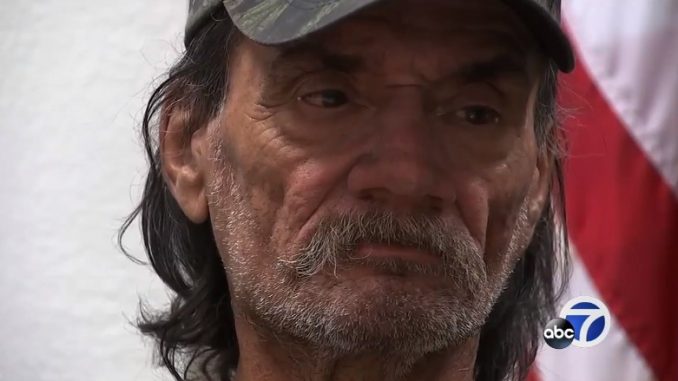
With the conversation taking an unexpected turn, Swalwell was about to learn a whole lot more about this panhandling vagrant. Although he had intended to write a ticket, what the deputy discovered had him ordering Michael, who goes by “Mick“, into his cruiser instead. “Got to know him pretty quickly, and realized that a citation’s not what this man needs,” Swalwell said.
A bad accident had left Mick, a former truck driver, disabled. After breaking his back, he spent a year in a wheelchair and another on crutches. He couldn’t drive a truck anymore, but he tried to return to work. First, he attempted manufacturing, then food service, but being on his feet and lifting caused too much pain. “When you have a serious broken-back injury, you never really recover from it,” Mick said.
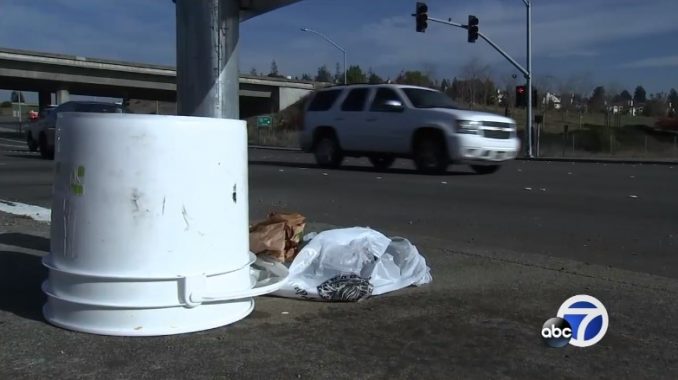
Mick panhandled on busy city corners to survive, developing a routine. Working his way around the intersection, he gathered five to ten dollars, just enough to get a meal. Then, he walked to a nearby McDonald’s or Wendy’s and used the money to get a bite to eat. “He does it three times a day,” Swalwell said. “He’s not panhandling for alcohol or drugs — he’s panhandling to stay alive.”
Realizing that begging for money and eating fast food had become Mick’s daily existence, Swalwell asked him one simple question. The answer changed both their lives. “‘What’s it gonna take to get you off the street?’ I said, ‘Well, a government check would do it, but I can’t seem to get one,’” Mick revealed, recalling his conversation with the deputy.
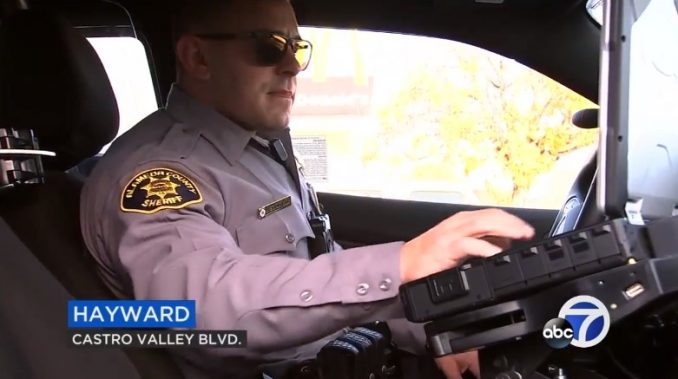
Mick needed a state-issued ID to get benefits, and as Swalwell already knew, the man didn’t have one. In fact, Mick hadn’t had an ID in years — not since he quit driving truck. Luckily, Swalwell knew what to do. After telling Mick to get in his cruiser, he drove him to the DMV, but there, they encountered another hurdle.
“I don’t exist anymore,” Mick said after receiving shocking news from the Department of Motor Vehicles. “I’m no longer in the system.” According to the DMV, the man didn’t exist, and that presented a new challenge in getting Mick off the streets. Luckily, the kindhearted deputy was undeterred.
To get a California ID, Mick needed proof of residency and a birth certificate — items that aren’t easily obtained when someone lives on the streets. What’s more, Mick never even knew his biological parents. But, Swalwell wasn’t giving up.
After obtaining a letter from a church, attesting that Mick resides in Hayward, they got a copy of his birth certificate from Highland Hospital, where he was born. That letter came with a surprise. “I get my birth certificate and it says my name is Gordon Michael Myers!” Mick recalled, still shocked about the first name he never knew he had.
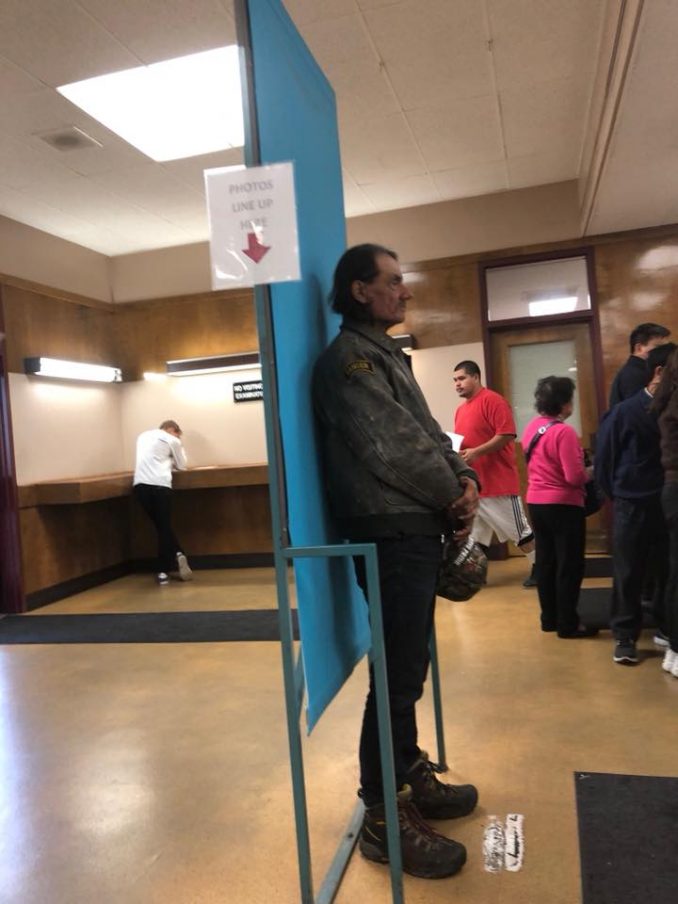
Finally, after three trips to the DMV, California issued Gordon Michael Myers a Senior Citizen ID, which he held up proudly for a picture standing next to Deputy Swalwell. The photo was posted on Facebook, where it went viral as the officer was praised for going above and beyond, never giving up during all the obstacles the two men faced.
“I walked in McDonald’s to eat breakfast, and the guys I usually sit with go, ‘Hey, you’re famous, man!’ and whipped out his phone and there I am on his phone,” said Mick, who was finally one step closer to getting the social security benefits he desperately needed and deserved after putting in years of work behind the wheel of his truck.
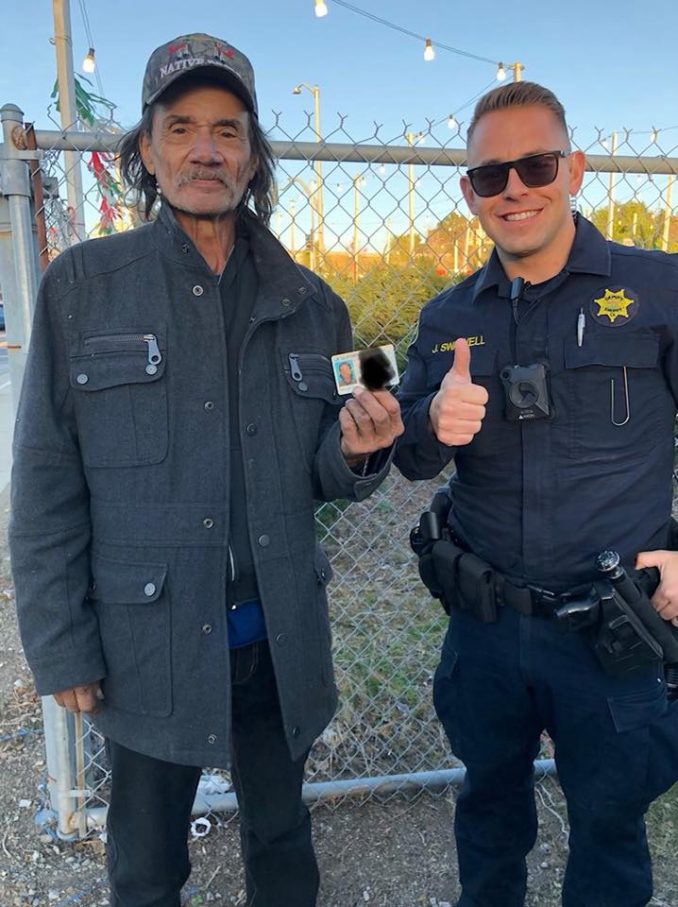
Mick isn’t the only one who benefited from the incident. “It’s taught me to get to know people better,” Swalwell said. It’s a lesson the Sheriff’s Office wants everyone officer to learn, according to Sgt. Ray Kelly, who said, “I think we’re gonna bring it to all our trainings and say, ‘Hey, if you have the ability to do something like this, let’s go ahead and do it.’”
We hope that other officers who hear Mick’s story will follow Swalwell’s lead. But, you don’t have to be in law enforcement to be inspired by the deputy’s kindness. All anyone has to do is heed six words Mick said about Swalwell and follow suit when given the opportunity. “He treated me like a friend,” Mick said. Such a simple gesture can change someone’s life.






